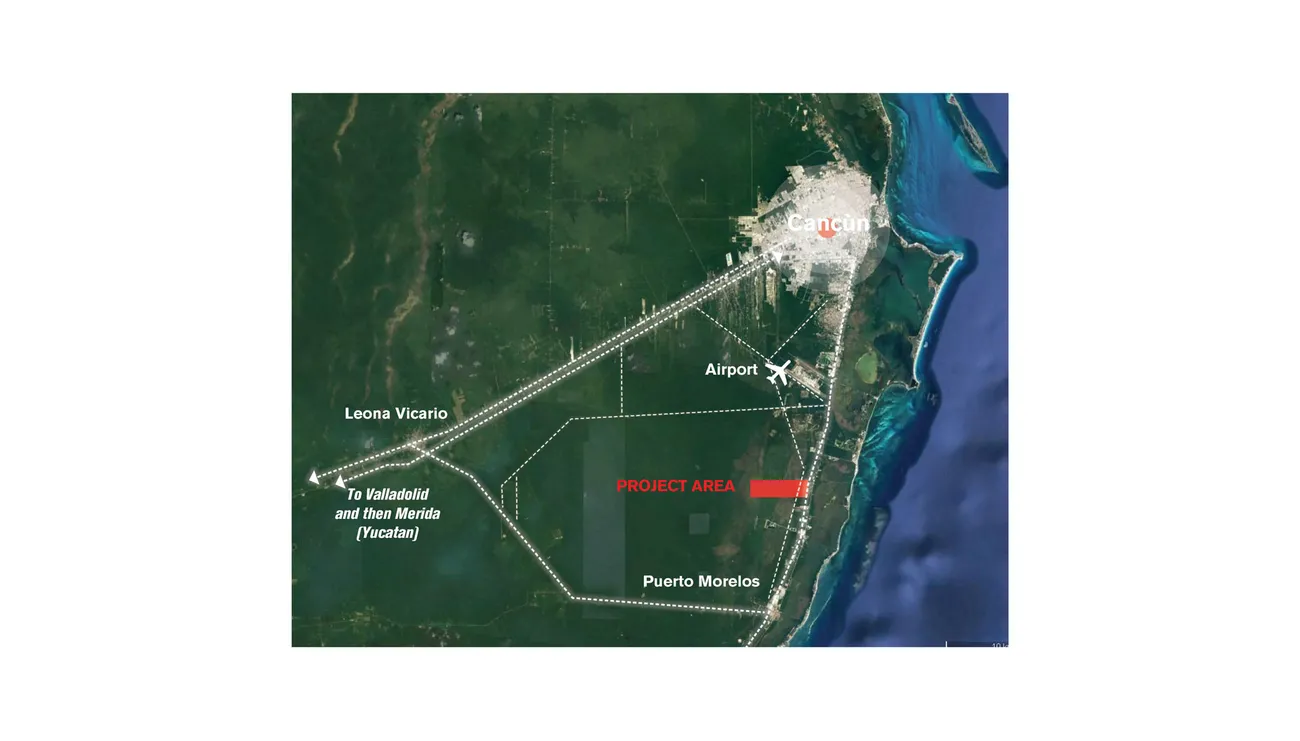Smart Forest City, Cancun, Mexique

A masterplan, developed by a large team, for a new city near Cancun near to the coast of the Yucatán Peninsula, is intended for the settlement of companies with high quality and comfort for residence and work. Also, educational opportunities will emerge, universities and public institutions. It was challenging to reverse the usual way of building design on site: Comfort without classical air conditioning systems, made possible by well thought-out buildings that also have no clear boundaries between inside and outside and are self-sufficient.
The buildings positioning allows the sea breeze to enter, and offers space for trees or umbrellas that provide shade. Most of the energy required is covered by a photovoltaic (PV) ring on the outskirts of the city. Commuters park their private vehicles there to drive semi-automatically to their home or office. The space under the PVallows cultivation of food. PV is on canopies that also collect water; the roofs themselves are greened. That's Boeri: not only is the goal to be free of greenhouse gases, but also to bind carbon with indigenous plants.
There are various options for energy storage. The cheapest would be the public grid. More investments are needed to store electricity for a daily energy shift:
Without real seasons, Cancun has a constant need for cooling; there is always a lot of solar radiation during the day; some of its energy has to fill the storage , which covers the nightly demand, in order to be recharged the next day. The "Smart Forest City" not only collects water, it also provides it: a desalination plant makes fresh water from the "internal sea". This in turn serves traffic as a waterway and is also used for conditioning the buildings: PV-operated heat exchangers release their waste heat into this sea, which remains balanced because it is connected to the Caribbean Sea and water is pumped in and out. Analogous to PV, the strategy of using existing resources several times is again evident.
A framework is thus set up for the future forest town. And it should become smart and function intelligently: Sensors in the buildings will collect data which, for example, provide values on energy flows in order to be able to make meaningful suggestions to users such as for operating the washing machine only when peak production is due, resulting in a lower price and supporting the energy management. Smart also by means of an app that maps the expected comfort outdoors for certain areas: Do you want to be in the sun or in the shade?




